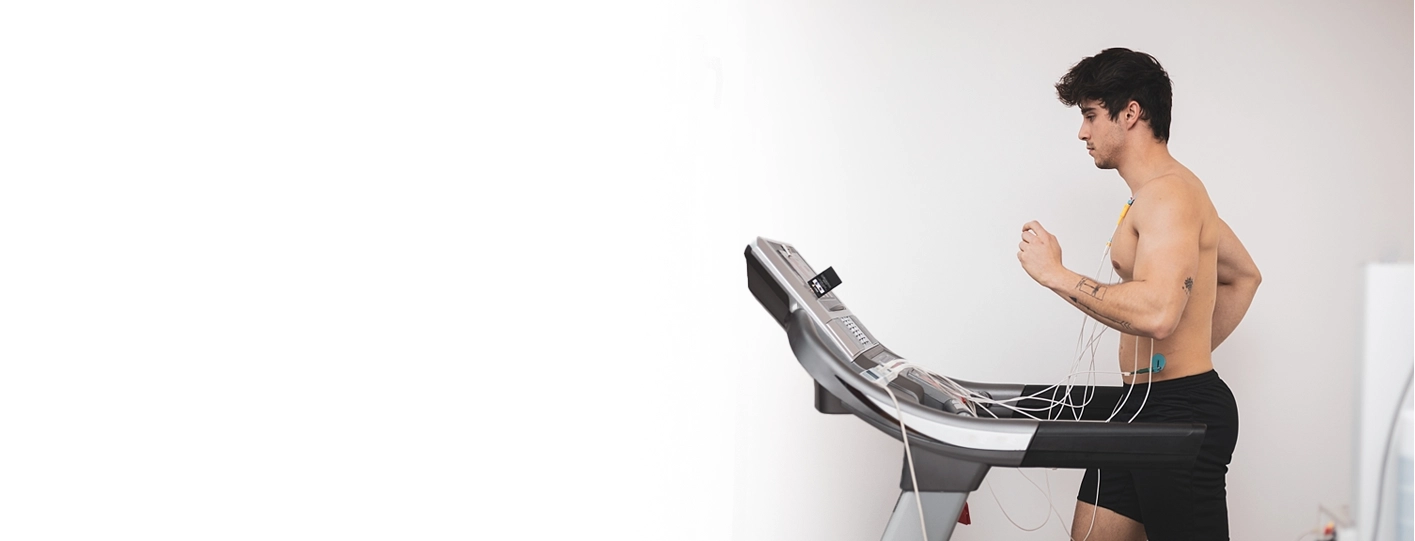



After carefully observing your symptoms or complaints, your doctor may order a stress test procedure for your heart to detect heart problems like:
There are many stress test methods for assessing heart function. Usually, these stress tests for cardiac function involve checking your heart rate, blood pressure, oxygen levels, and electrical activity. Some of them can help detect blocked arteries or heart problems that appear during physical effort.
Here are some cardiology stress tests:
You are instructed to walk on a treadmill or pedal a stationary bike (usually lasts about 15 minutes) simultaneously, safely increasing speed or resistance. Electrodes on your chest are connected to an electrocardiogram (ECG) machine to record your heart's electrical activity, blood pressure, and breathing.
Why it Matters
This is the most common and basic heart stress test and can help detect blocked arteries and irregular heart rhythms that occur during exercise. It helps diagnose coronary artery disease and heart valve problems.
This test uses ultrasound imaging (two-dimensional echocardiography) to show how well your heart muscle is working to pump blood to the body while you exercise. Before and after exercise, ultrasound pictures show how well your heart pumps blood.
Why it Matters
It helps detect heart muscle problems and areas with poor blood flow. It helps assess thickened heart muscle (hypertrophic cardiomyopathy) and stress-induced irregular heartbeats (arrhythmias).
This advanced test uses safe levels of a radioactive substance or dye and a cardiac imaging scan to evaluate heart function. It's done in 2 phases: a resting phase and a stress phase (exercise or medicine-induced). A special camera tracks the radioactive dye to see blood flow to your heart at rest and during stress.
Why it Matters
It reveals the severity of the blockage of coronary artery disease. Help in the assessment of whether previous treatments, such as stents or bypass surgery, are working properly or not.
For individuals who are unable to exercise well, medicine (like Adenosine, dobutamine, etc.) is given to make the heart work harder, mimicking exercise. Then, with the help of an ECG, heart rate, blood flow, and rhythm are monitored.
Why it Matters
It can help detect coronary artery disease (CAD), ischemia, myocardial infarction, or damage to heart muscles.
This stress test evaluates how well your heart and lungs work together during exercise. Oxygen levels, heart rhythm, and breathing are measured.
There are many common reasons CPET is performed, including
Why it Matters
Help check the severity of respiratory disease. Help doctors decide if advanced treatments like heart transplantation should be considered to help with congestive heart failure (CHF). Help personalize rehabilitation programs.
Cardiology stress tests are generally safe if done under professional guidance; however, like any medical test, they can carry some potential risks.
The accuracy of cardiology testing varies, depending upon the age, gender and clinical characteristics of the individual. The accuracy can be between 67% and over 90%, depending on the type of test and the person's condition.
The cost may vary depending on various factors like city and type of hospital; the general range is:
Not everyone is suitable for this cardiac stress test. The best cardiac doctor, like one at Artemis Cardiac Care, will order these tests by considering various factors like
If recommended, the exercise portion of the basic stress test lasts about 10 to 15 minutes. Additional time is required for getting ready to exercise and recovering afterward. All you need is to follow your doctor's advice for the maximum accuracy of the test and to detect any potential heart condition.
Q1: What is a good Cardiac Stress Test score ?
A: A good score means the heart has attained 85% of its predicted maximum rate without any abnormal ECG changes or symptoms. This indicates your heart handles stress well and has a lower risk of potential disease.
The other method is a Duke Treadmill Score (DTS) of 5 or above, indicating a low risk of cardiac complications.
Q2: How do I prepare for a Cardiac Stress Test ?
A: Follow your doctors advice, which may include avoiding caffeine, smoking, and certain medications before the cardiac stress test. Don comfortable clothes and shoes. Make sure to eat light but avoid a heavy meal right before the test.
Q3: Who should not have an exercise Stress Test ?
A: Your doctor will decide if you are the right candidate for the cardiology stress test or not. However, people with severe heart conditions, unstable angina, recent heart attacks, uncontrolled high blood pressure, or other serious illnesses should avoid exercise stress tests. The doctor may recommend alternative testing methods.
From Recent Advancements in Heart Care to Tips and Tricks to make your Heart Healthy Again, stay updated with reliable and informative blogs by our experts.